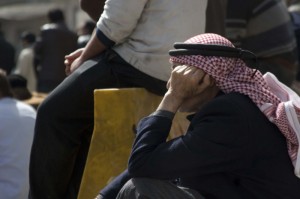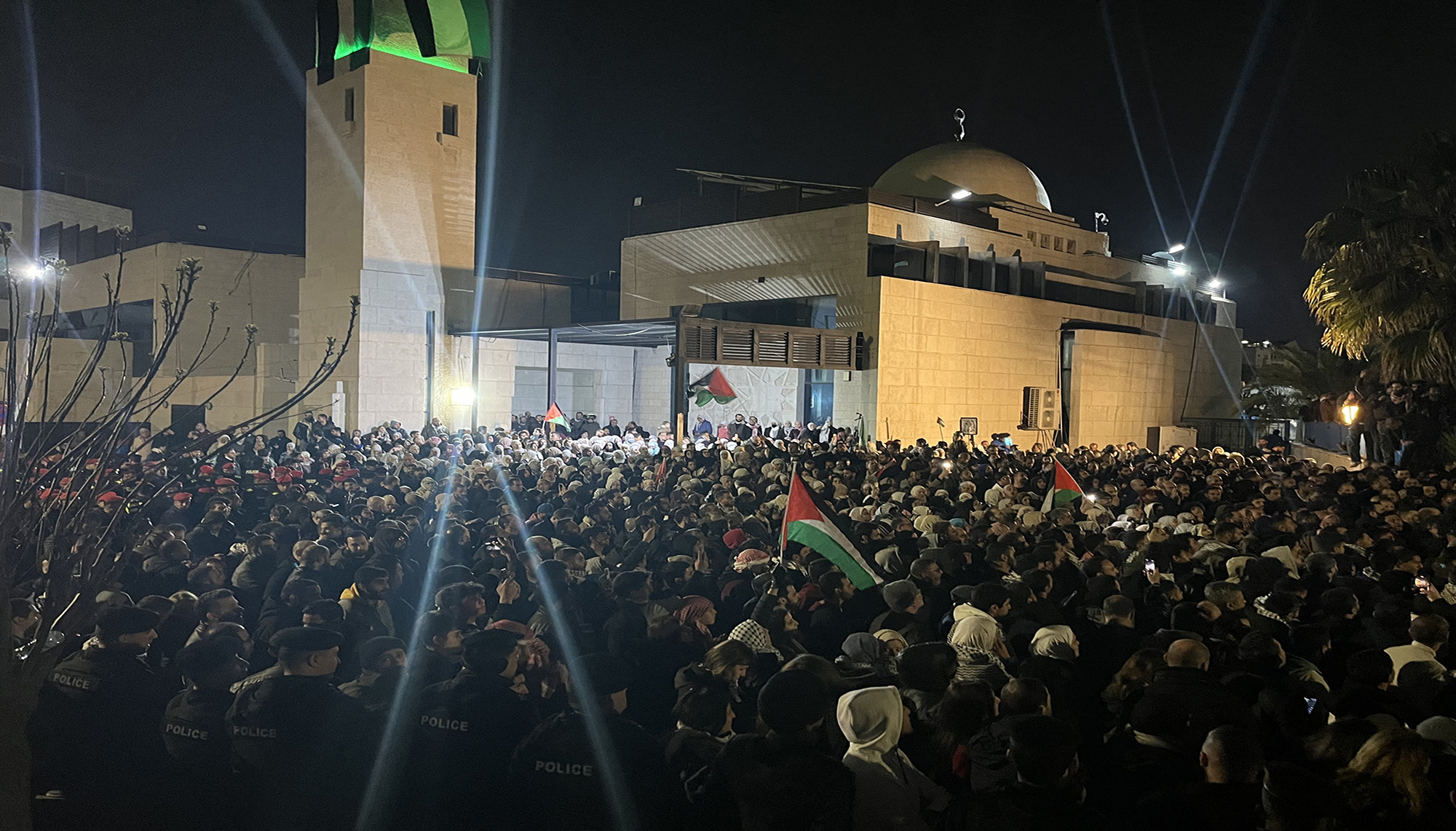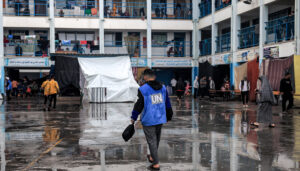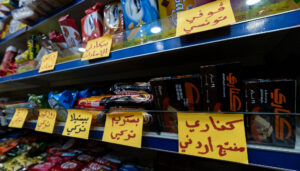The events of this past Friday in Amman and subsequent reactions have left me not only speechless, a state that people who know me know is rare, but also clueless. Where do we go from here?
Many are now calling for a period of calm pointing to the March 24 movement as evidence that taking to the streets will not advance reform in Jordan, but rather incite division. Many are calling for all those ordinary people, young and old, from east and west, rich and poor, who yearn for reform to trust in the leadership and vision of His Majesty King Abdullah II and let the government, under the King’s mandate, “do its job”.
But I ask you this, how can any responsible citizen carry on with his or her daily life and TRUST?
Every day the government gives me a multiplicity of reasons to believe in the madness of this notion. Someone once said: the definition of madness is to keep doing the same thing and expect different results! Every day the government demonstrates that it cannot possibly manage the public state of affairs in any way that is different (or better) than what we have witnessed over the past 12 years – the very thing and way of governance we all want to reform. As a point of clarification, by “government” I mean the entire system of the management of our nation with its three branches: executive, judicial and legislative.
Here are a couple of examples.
The day after the Friday events on Dakhilieh Circle, the Parliment passed the “amended” Public Meetings Law. I urge every Jordanian to read this law and tell me if it is a step that inspires confidence, if this is the rule of law that free Jordanians want to live under. This law is supposed to be the easiest of the trifecta that is supposed to set the stage for a vibrant democratic parliamentary life in Jordan: The Public Meetings Law, the Elections Law and the Political Parties Law. You don’t need to be lawyer or a member of Parliament or even a university graduate to understand that this law, in its short 13 articles, does nothing to advance political freedoms in Jordan. To the contrary, the amendments are so minor that the law remains a cloak of government control choking basic freedoms of speech that are theoretically guaranteed by our Constitution. It is laughable and shocking that both houses of parliament passed it with almost unanimous approval. Under this law, any Jordanian who wishes to hold a meeting relating to “public government policies” must still obtain prior approval, as per the prior version of the law, regardless of where this meeting is held or how many people will attend. Even if we accept the premise that our government should be able to regulate its citizens’ private meetings, which I whole heartedly reject, the law does not even include any criteria for granting or rejecting approvals! The amendment exempts only a list of 7 categories of meetings from the requirement of prior approval. For example, political parties’ meetings at their headquarters are exempt. But what if you want to hold a meeting to discuss establishing a political party? The next time you are sitting in your living room with your friends discussing, with yearning concern, the political state of our country, you are violating the law.
Is this the reform we want? If this is as far as our Government is able to go to safeguard our fundamental rights? It made me wonder, if this is the easy one, what will they do with the Elections Law?
Then I was reading the news two days ago. The Prime Minister announced to the media that he had transferred the Disi Water Project file to the State Security Court for prosecution on corruption charges. In an effort to fight a plague that every Jordanian ails from, the current cabinet initiated, with great hurrah, a campaign of transferring files one after another to a controversial extra-judicial investigation commission. Many ironies and issues relating to this campaign merit public discussion, including the capacity of the Anti-Corruption Commission, and the guilty-before-proven-innocent type statements issued by the Government upon transferring files, even before the commencement of investigations, let alone a trial. What is more, we are all very comfortable applauding these prosecutions but so afraid to demand holding the Prime Minister accountable for one of the worst episodes of election fraud which occurred in Jordan during his last term in 2007; a crime that robbed us of our voices; a crime far more offensive to the very dignity of every Jordanian.
Yet, a far simpler fact published in the press two days ago about this particular corruption file robbed me of the little faith I had left. According to the official government Petra News Agency, the consulting firm at the center of the corruption accusations in the Disi Water Project file was effectively owned by non-other than Khalid Shaheen. For those of you who do not know him, Khalid Shaheen has been convicted under corruption charges relating to the Jordanian Petroleum Refinery Company and sentenced to prison. But this very same government, about month ago, granted Khalid Shaheen, after his conviction, the right to seek medical treatment in the US!
I can keep on writing about every incident that chips away at my faith. These two incidents are events that have occurred only in the past week.
Our rock: taking to the streets is futile and possibly destructive. The hard place: staying at home to let the government undertake this historical effort in unprecedented times is mad!
Now What?
I understand and know for a fact that we each have a responsibility to shoulder, and that reform in Jordan should not be restricted to a government-to-citizen dialogue but also a citizen-to-citizen dialogue. But I am now certain that in the absence of an all sweeping Egyptian or Tunisian style revolution, be it because the majority of Jordanians don’t want it or for any other reason, we need leadership. It is certainly not the totality of the solution, but I propose that it is a critical, and dare I say, missing piece! There is indeed a paradox in leadership that requires a delicate balance to allow the people to reach their own consensus, but can we afford to wait and see given the events of our region and those in Jordan over the past week?
Neither Bakhit 2007, nor Bakhit 2011 can or will provide us with the indispensable leadership and vision needed at this juncture. Therefore, the question remains, what is your vision Your Majesty for this transformative time in Jordan, and how do you propose we get there collectively as a nation?











